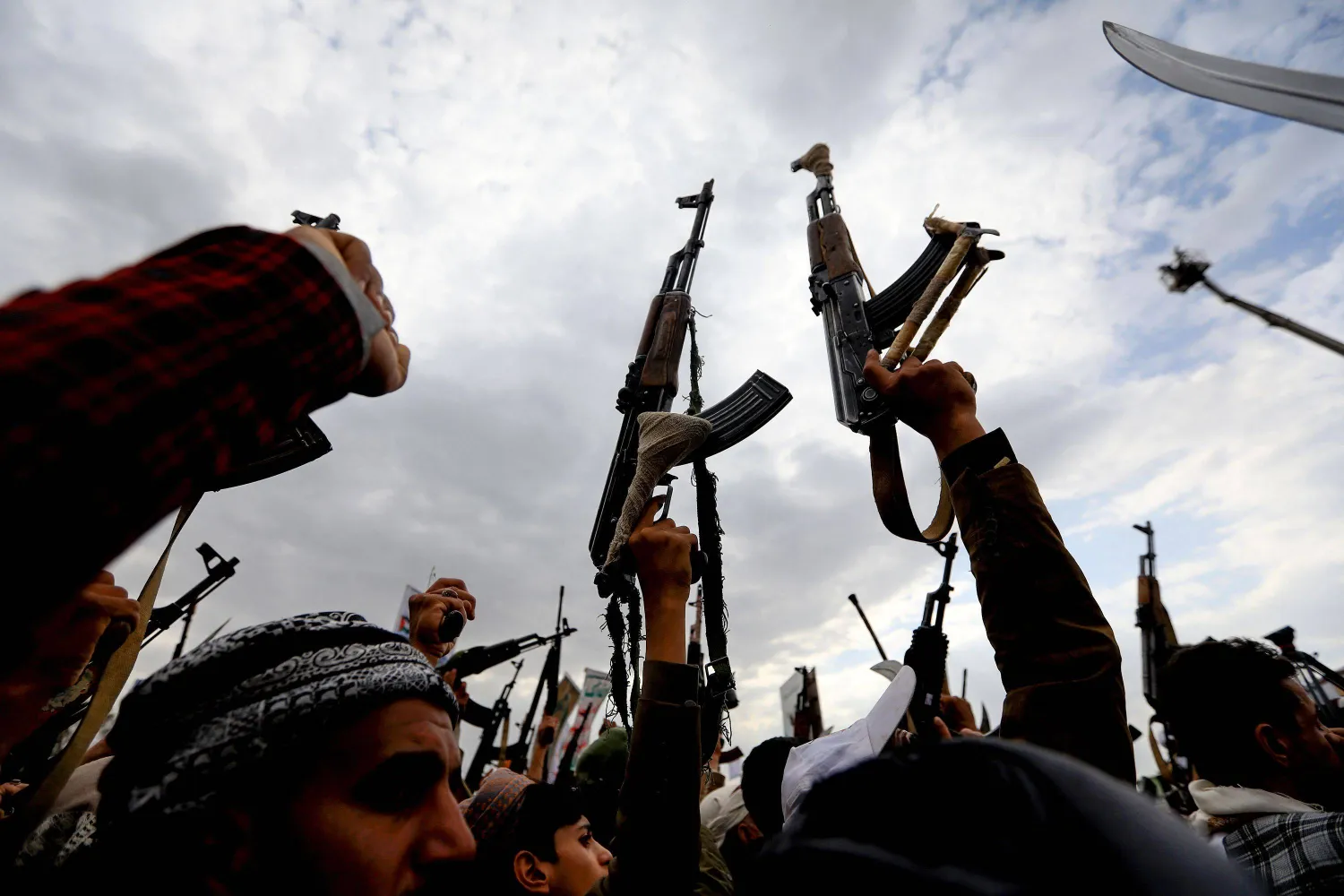A vessel was hit by unknown projectiles 83 nautical miles southeast of Yemen's Aden early on Friday, the United Kingdom Maritime Trade Operations and British security firm Ambrey said.
All crew were reported safe, UKMTO said in an advisory note, and Ambrey, in a separate advisory, said the vessel was a Singapore-flagged container ship.
"The ship was transiting northeast along the Gulf of Aden when a merchant vessel in the vicinity observed 'light and blast' where the ship was located," Ambrey added.
The British security firm said the ship appeared to perform evasive maneuvers immediately and switch off her automatic identification system approximately an hour later.
Ambrey assessed the vessel to be aligned with the Houthi target profile.
Since November, the Houthi militias in Yemen have launched drone and missile strikes in shipping lanes in the Red Sea and Gulf of Aden. The group has said its actions are in solidarity with Palestinians affected by Israel's war in Gaza.
Britain and the US have conducted retaliatory strikes since February, shooting down drones and bombing attack sites in Yemen.
The US Central Command said on Thursday USCENTCOM forces successfully destroyed two surface-to-air missiles (SAM) and four uncrewed aerial vehicles (UAV) on the ground in Houthi-controlled areas of Yemen.
“It was determined these weapons presented an imminent threat to US, coalition forces, and merchant vessels in the region,” USCENTCOM said in a statement.
“These actions were taken to protect freedom of navigation and make international waters safer and more secure,” it added.









